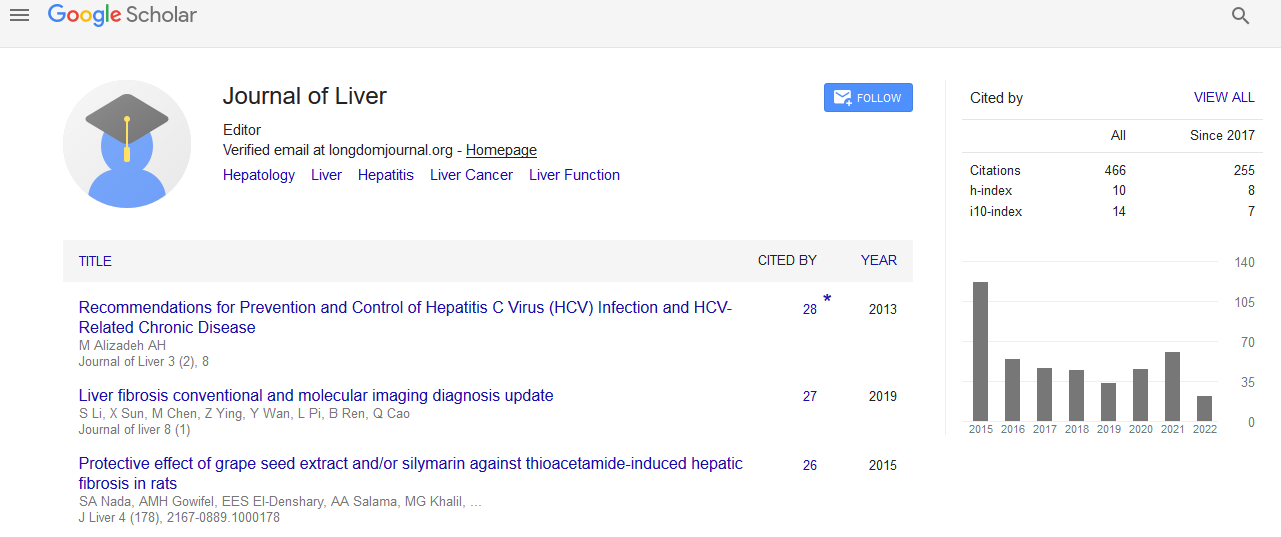PMC/PubMed Indexed Articles
Indexed In
- Open J Gate
- Genamics JournalSeek
- Academic Keys
- RefSeek
- Hamdard University
- EBSCO A-Z
- OCLC- WorldCat
- Publons
- Geneva Foundation for Medical Education and Research
- Google Scholar
Useful Links
Share This Page
Journal Flyer

Open Access Journals
- Agri and Aquaculture
- Biochemistry
- Bioinformatics & Systems Biology
- Business & Management
- Chemistry
- Clinical Sciences
- Engineering
- Food & Nutrition
- General Science
- Genetics & Molecular Biology
- Immunology & Microbiology
- Medical Sciences
- Neuroscience & Psychology
- Nursing & Health Care
- Pharmaceutical Sciences
Abstract
Complication of Cirrhosis Portal Hypertension: A Review
Portal hypertension is responsible for most of the complications that mark the transition from compensated to decompensated cirrhosis, namely variceal hemorrhage, ascites and hepatic encephalopathy. Gastroesophageal varices result almost solely from portal hypertension, although the hyperdynamic circulation contributes to variceal growth and rupture. Ascites results from sinusoidal hypertension (portal hypertension) and sodium retention, which is, in turn, secondary to vasodilatation and activation of neurohumoral systems. The hepatorenal syndrome results from extreme vasodilatation with extreme decrease in effective blood volume and maximal activation of vaso constrictive systems, renal vasoconstriction and renal failure, which is probably an indirect effect of the changes in splanchnic circulation. Spontaneous bacterial peritonitis, a frequent precipitant of the hepatorenal syndrome, most probably results from deficient immunity, resulting in pathological gut bacterial translocation. Hepatic encephalopathy results from portosystemic shunting and hepatic insufficiency leading to accumulation of neurotoxins, mainly ammonia, in the brain. As for any illness, prediction of death in cirrhosis is essential in its management; and the development of portal hypertension and its complications have important prognostic value.

